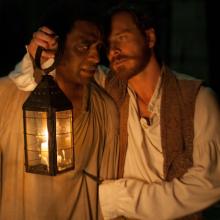anne frank
I ask myself how we got here, why the American church has hardened its hearts to refugees when one of the major themes of the Bible is welcoming the stranger. How did we lose trust in a vetting system that has worked for decades? How did we begin to see refugees as dangerous when there is no statistical evidence to back it up? How did we forget that so many of us are descendants of people who were oppressed and looking for a better life? How did we stop seeing the beauty of American culture as coming from a collision of cultures? How did we lose our way — did it happen overnight or has it been slowly brewing for a long time?

Photo via Tony Baggett / Shutterstock
In Anne Frank, the world remembers a light of courage, even hope — a girl who lived and loved and laughed in the face of immense terror.
I am co-owner of an online boutique store that empowers survivors of trafficking with employment.
I am a social entrepreneur.
I am an abolitionist.
I am…uncomfortable with these kinds of labels.
Because at the end of the day, I’m very ordinary, and these descriptors seem to imply that I’m not.
I live an ordinary life. I wake at the crack of dawn to drive my kids to school and then return home to work, trying to get most of my business done during the hours that my children are at school. Snow days and random holidays are the bane of my work life, and the words, “Sorry, hon, I’m working right now. Give me a minute?” come out of my mouth more than I’d like. I spend the lion’s share of my days on my laptop, troubleshooting, responding to emails, thinking about future lines of clothing, and making sure that the expenses won’t be more than that month’s income. Sometimes, in the midst of the daily humdrum of life, I forget that what I’m doing really does make a difference, half a world away, in the lives of survivors of trafficking.
Before I saw the new film 12 Years A Slave, I knew nothing about Solomon Northrop or his astounding story of courage, forbearance, and faith.
I’d never heard of Northrop, an African-American freeman, who was born and reared in upstate New York in the early 1800s, well before the abolition of slavery in the rest of the nation. I’d not known of the historical practice of kidnapping freeborn black Americans in the North and selling them into slavery in the South.
I’d never heard about how Northrop, an accomplished violinist, was bamboozled into traveling from his farm in Hebron, N.Y., where he lived a prosperous life with his wife and three children, to Washington, D.C., for work, but was drugged, kidnapped, and sold in Louisiana. I’d never heard how he remained for a dozen years before heroically regaining his freedom in 1853 — one of a very few kidnapped freemen and freewomen ever to regain their freedom.
On Saturday, the pop culture icon Justin Bieber visited the Anne Frank House in Amsterdam while on a world tour. At the end of his visit to the museum, Bieber wrote a message in the guest book.
His three-sentence message has become Big News. Sunday afternoon I checked my Huffington Post app and discovered this headline on the homepage, “Fury Erupts over Bieber’s Obnoxious Anne Frank Comment.” On Monday morning, the scandal was front page news on Yahoo.com, “Justin Bieber Gets Blasted for Anne Frank Comment.” The New York Times reports that Bieber’s comment “set off a maelstrom of criticism.”
What did Bieber write in the guestbook?



